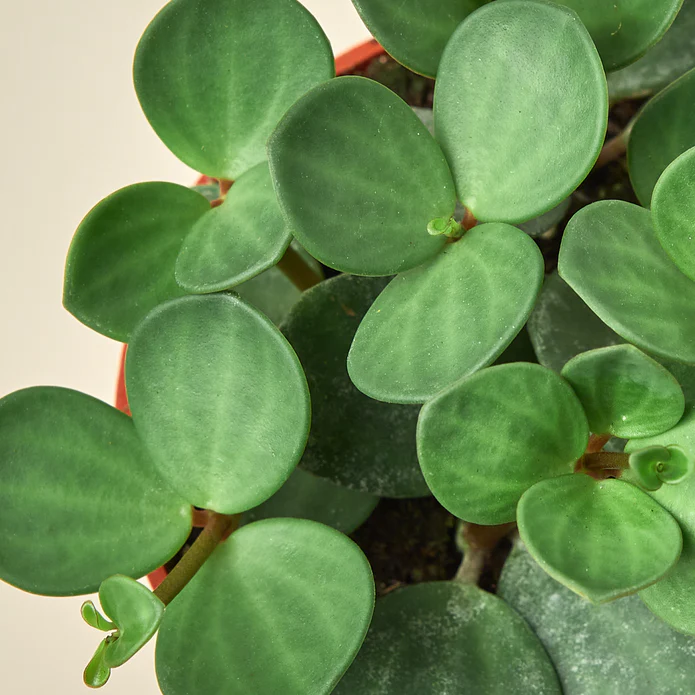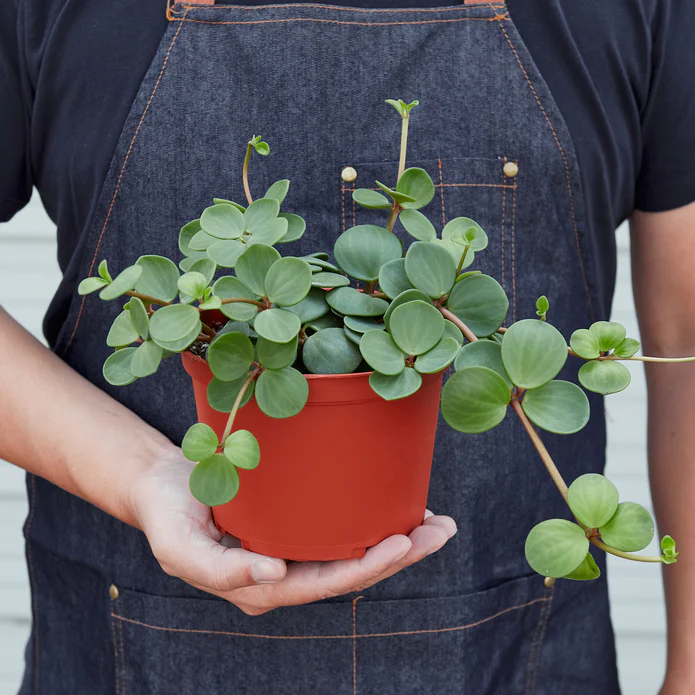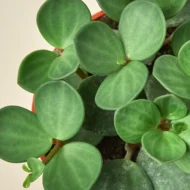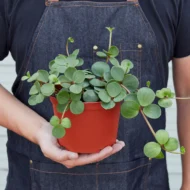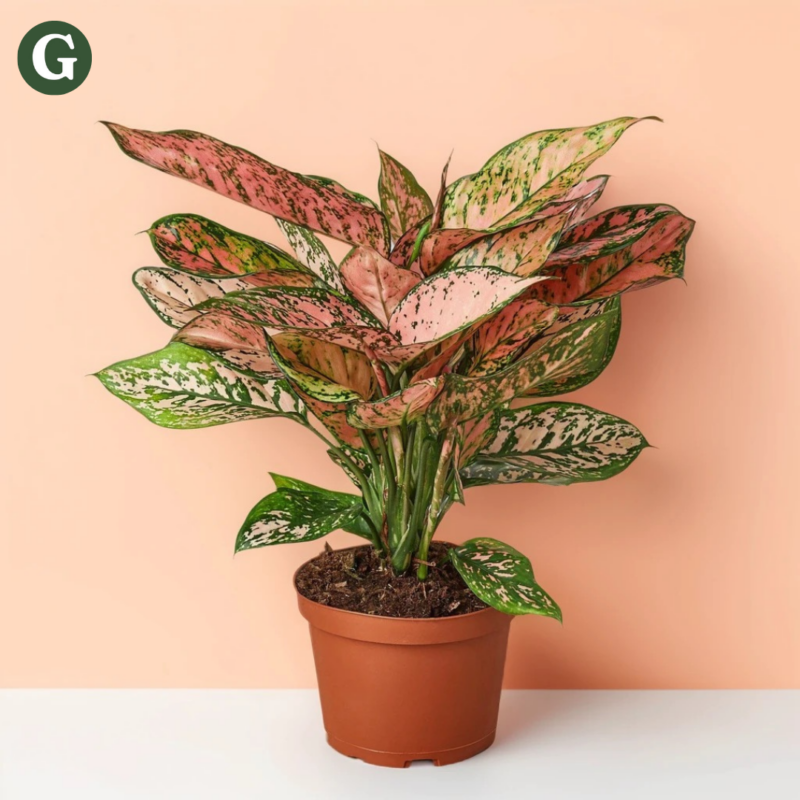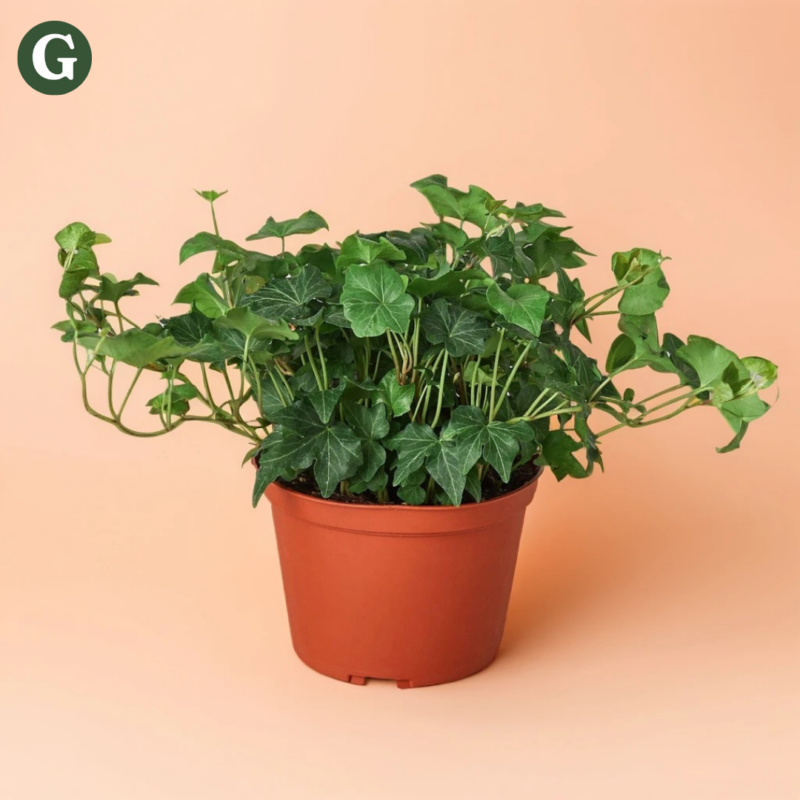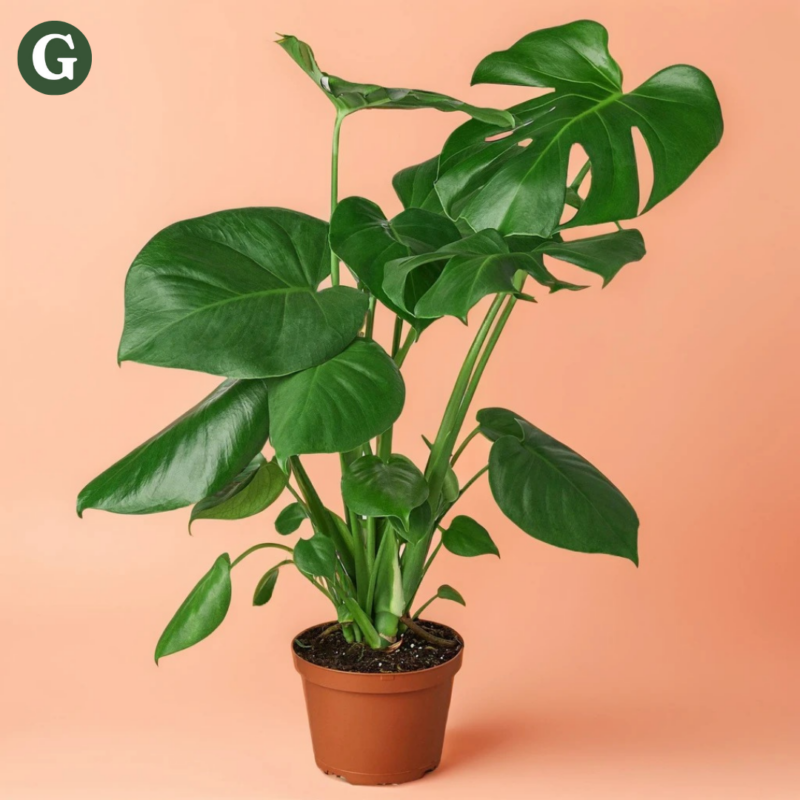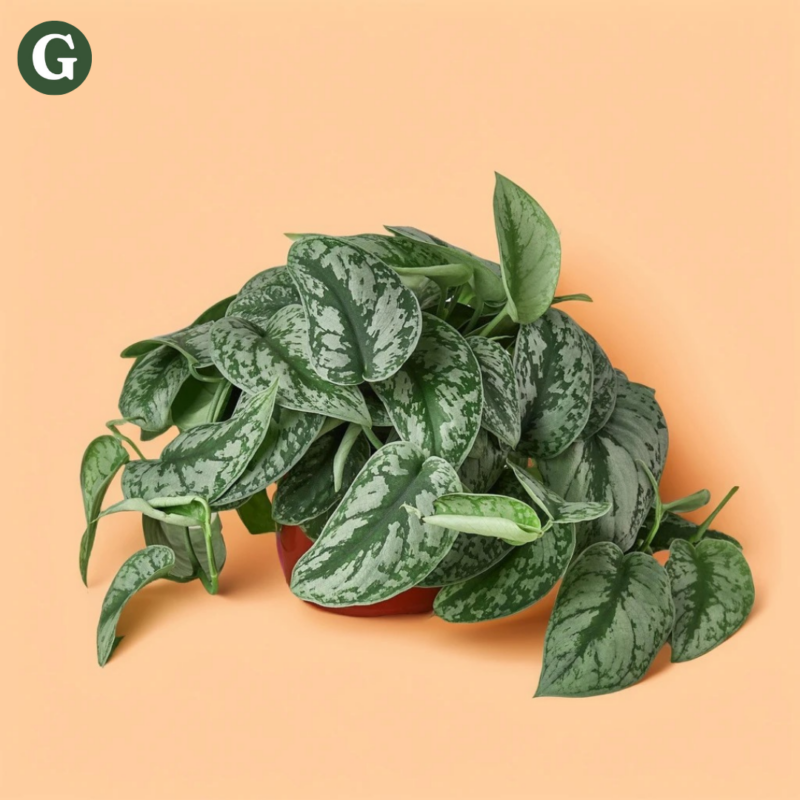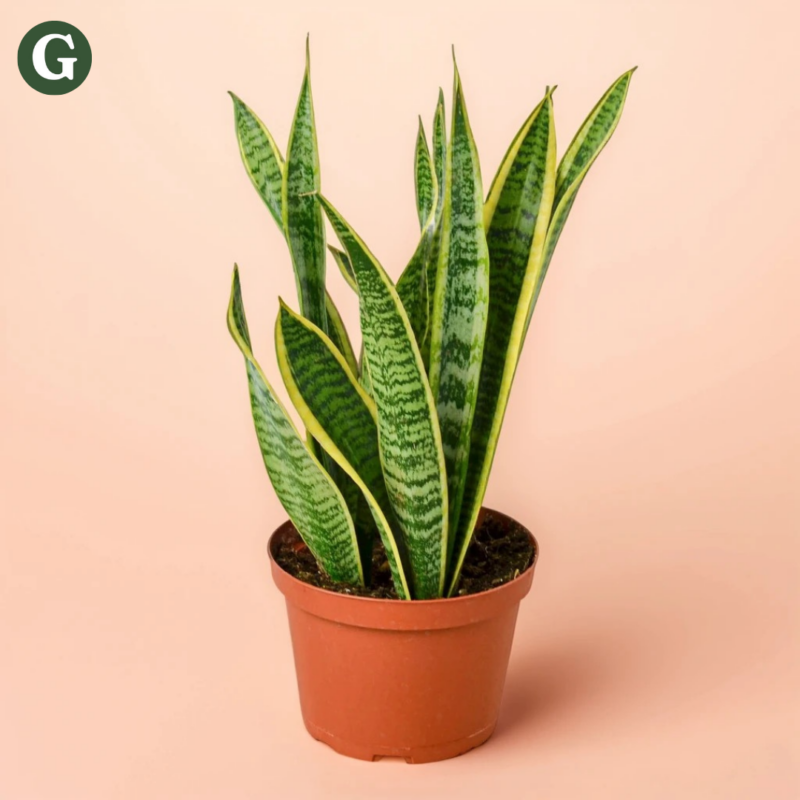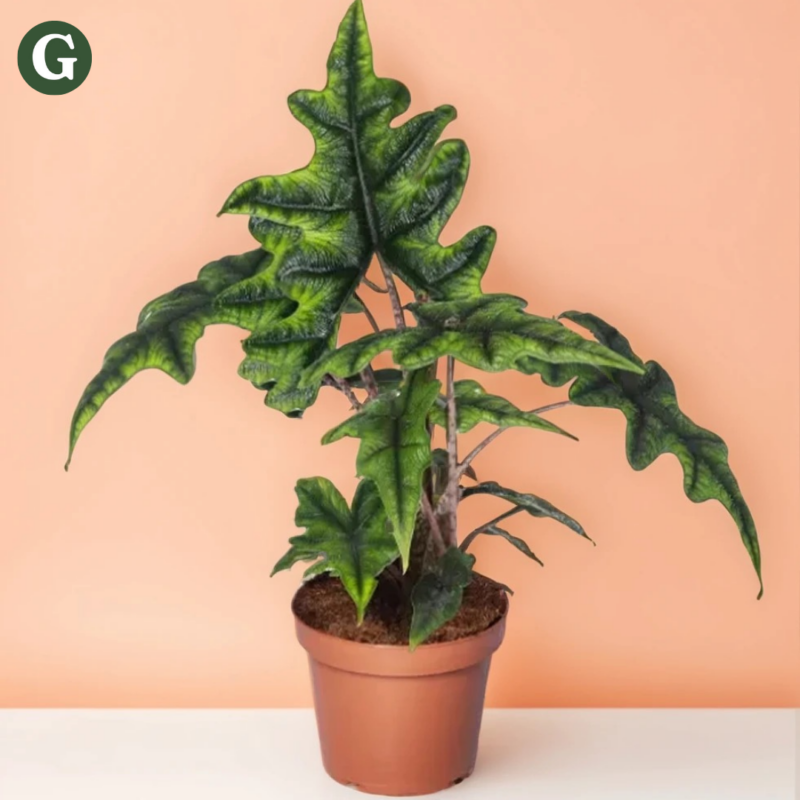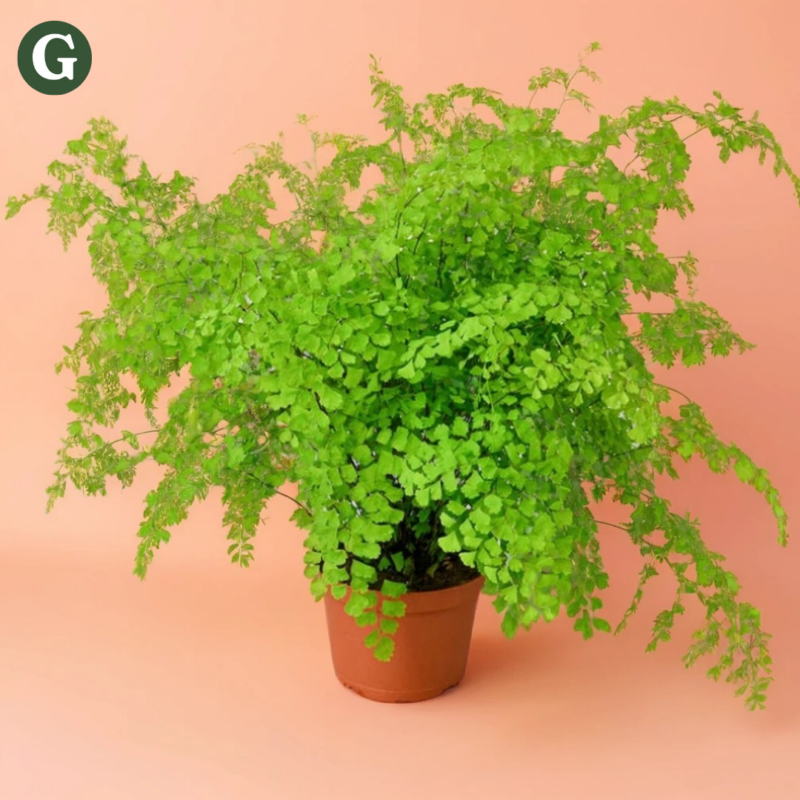Peperomia Hope
Botanical Name: Peperomia tetraphylla 'Hope'
Common Name(s): Peperomia Hope
Peperomia Hope is a charming, semi-succulent plant known for its round, fleshy, light-green leaves that grow in pairs along trailing stems. This compact plant, a hybrid of Peperomia quadrifolia and Peperomia deppeana, has a delicate, layered look, making it a lovely addition to hanging baskets or as a trailing accent on shelves or desks. Native to tropical environments, Peperomia Hope is relatively slow-growing and typically reaches a length of around 12 inches.
Peperomia Hope does best in bright, indirect light, which encourages healthy growth and preserves its vibrant leaf color. It prefers well-draining soil and needs to dry out between waterings, as it is prone to root rot if overwatered. As a semi-succulent, it is more drought-tolerant than many other houseplants, so less frequent watering is generally better. It also adapts well to average indoor humidity, though it may appreciate higher humidity if possible.
Air Purifying Qualities: Peperomia Hope helps improve indoor air quality by absorbing carbon dioxide and releasing oxygen, adding a touch of freshness to indoor spaces.
Note: Peperomia Hope is non-toxic to pets, making it a safe, pet-friendly option for households with cats and dogs. While generally safe, it’s still wise to monitor pets to ensure they don't nibble on the leaves.
Care Insights & Expert Tips
- Fertilize sparingly: Feed your Peperomia Hope with a diluted, balanced liquid fertilizer once or twice a year during the growing season. Too much fertilizer can burn the roots.
- Repot carefully: Repot your Peperomia Hope only when it becomes root-bound. Use a well-draining potting mix.
- Avoid overwatering: Overwatering is the most common cause of death for peperomias. Allow the soil to dry out completely before watering again.
- Protect from cold drafts & pests: Peperomias are sensitive to cold drafts. Place them away from drafty windows and doors. Additionally, keep an eye out for common houseplant pests like mealybugs and spider mites. Treat infestations promptly with insecticidal soap or neem oil.

Visit our plant care library
Find essential tips to keep your plants thriving, vibrant, and healthy.

